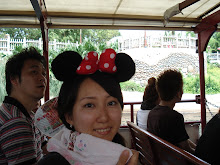Is it possible to perceive others without in some way judging or categorizing them? If so, how? If not, how can we make the judgments we do make more fair?
I think it is impossible to perceive others without judging or categorizing. I believe we always have judgments on others, and everyday we change these judgments by finding out something new about them. Even for the old friends, I sometimes think; “I didn’t know she thinks like that”, or “I cannot believe it. In five years she never came late, but she is not there yet.” I am judging myself too. I sometimes think, “It’s not me” or “I am not that kind of person who says that.” Part of the reasons for these is because I am unconsciously judging and categorizing people, including myself. I remember the movie Spiderman 3, when the girl says, “What’s happened to you?” to the Spiderman. She was judging or categorizing him as a good guy, and confused by his words and acts because these weren’t what she always expected from him. For that, he replies to her, “I don’t know.” He was also confused for him being not like him. Those feelings of betray and surprise are the results of judgments and categorizing of people.
To make the judgments fair, the textbook states the importance of cognitive complexity (page 52). In a court, to make a judgment fair, there are always opinions from both sides for judges. A presiding judge never gave a judgment by hearing opinions from only one side. We should practice this for everything before we judge. For the information we hear from TV or friends, it is always better to listen different opinions, rather than one sided opinion. This is one way to become a critical listener. To become a critical customer, we can have third person voice in our minds. For example, before we buy something, we can ask ourselves; “It is very cute. You should buy it.” and “Will you really use it? Don’t buy it.”
As for people, by seeing others and hearing what they are saying form different perspectives, we can make more fair judgments on them.
Final Post
17 年前
